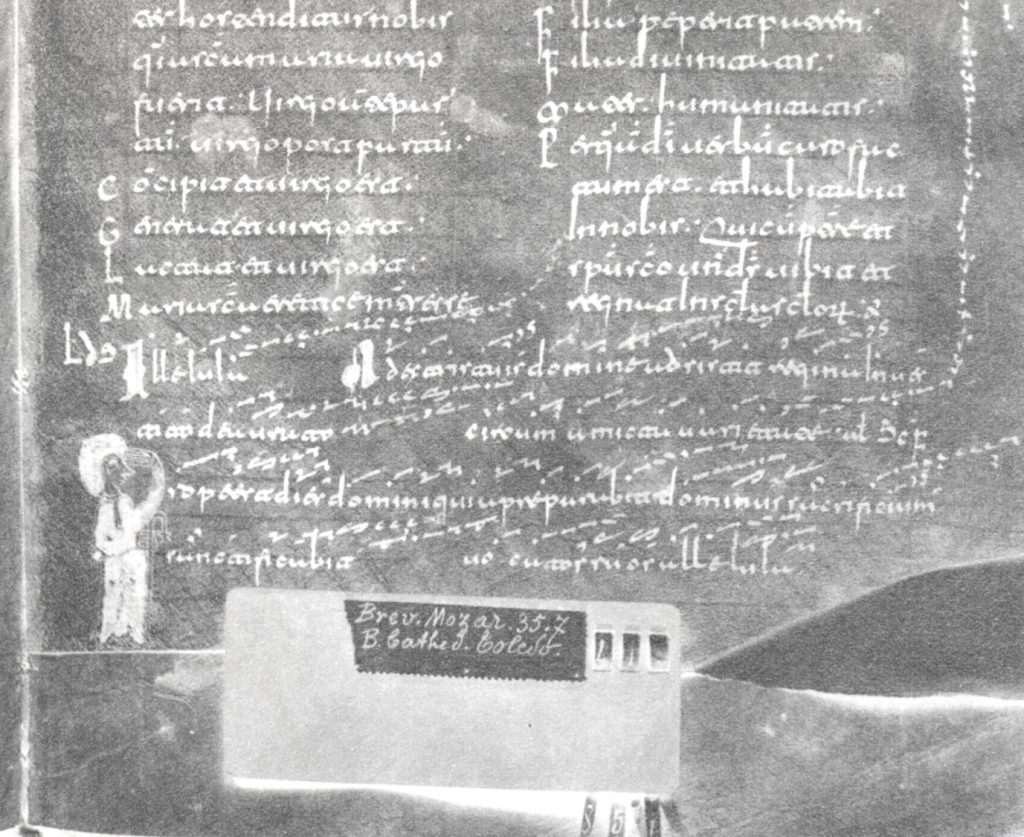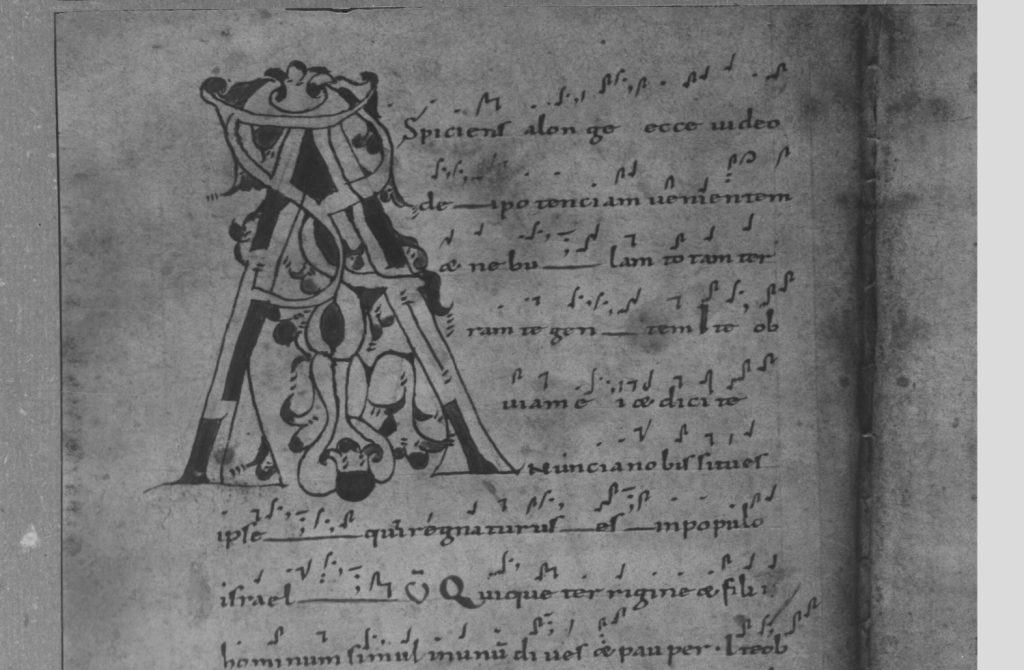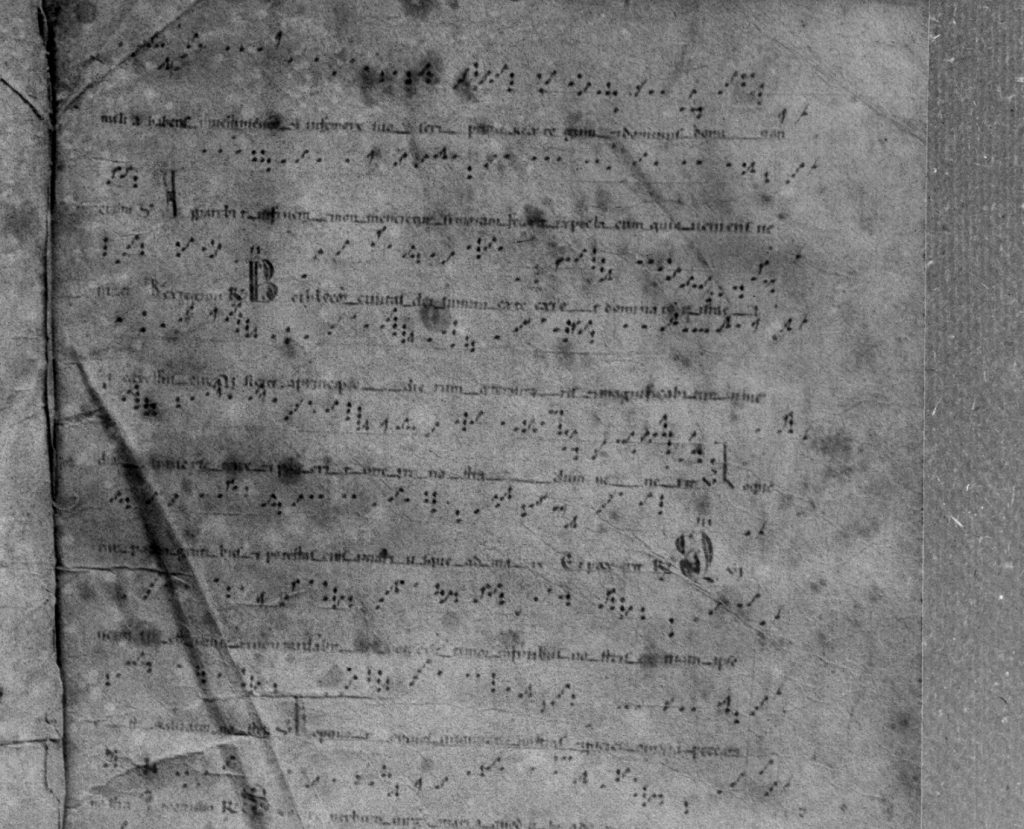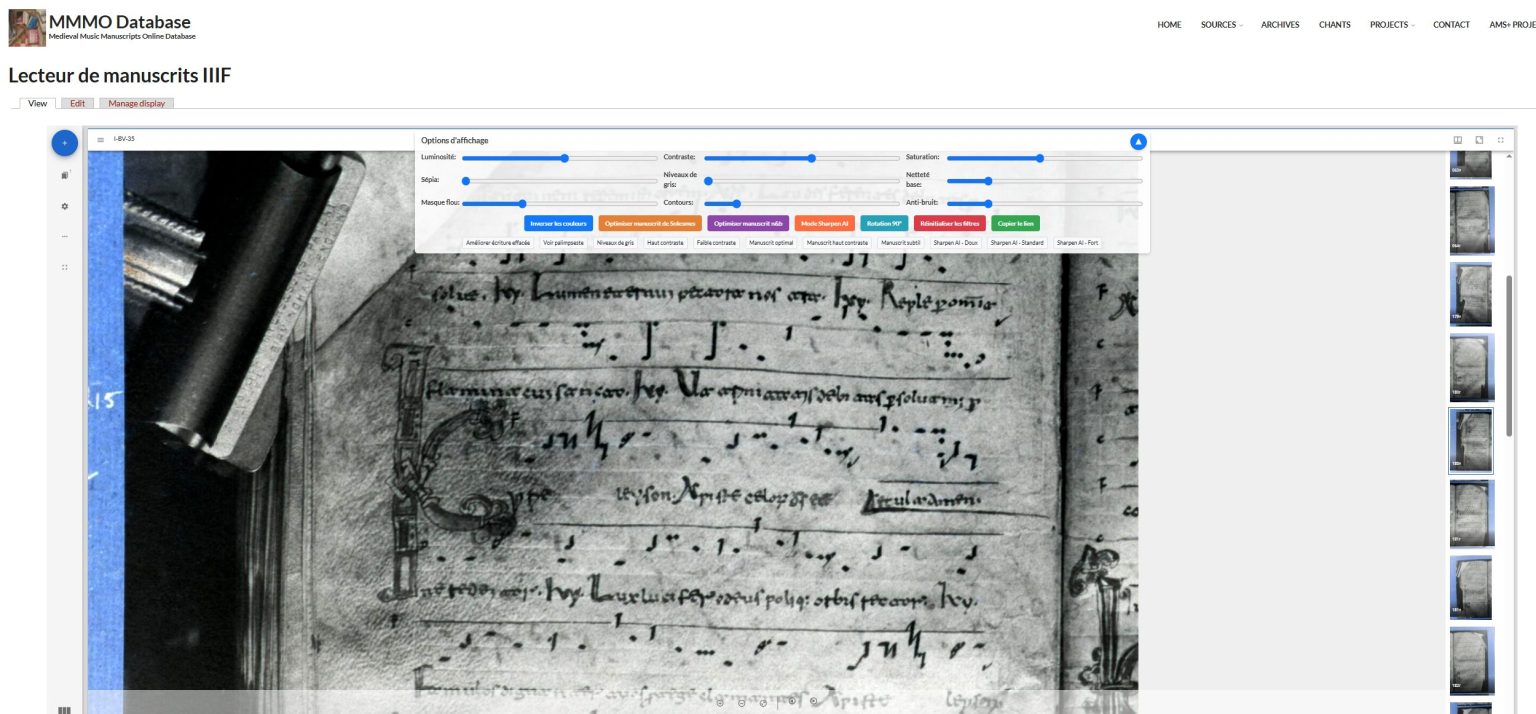The REPERTORIUM project is proud to announce a landmark achievement in the preservation and dissemination of medieval musical heritage: the first 600 digitized manuscript reproductions from the Atelier de Paléographie Musicaleof Solesmes Abbey are now freely accessible online.
This release marks the culmination of an intensive phase of work undertaken between June 2023 and March 2024 by the Association Musicologie Médiévale (AMM). Over ten digitization sessions, the team photographed and catalogued a staggering 1,933 sources, yielding over 80,000 high-resolution images—one of the most ambitious digitization efforts in medieval musicology to date.
Photographic work was led by Dominique Crochu and Dominique Gatté, under the expert guidance of Gilles Kagan (IRHT-CNRS). Hosting and long-term access are provided by the Digital Image Archive of Medieval Music (DIAMM) at the University of Oxford, with user-friendly viewing made possible through the MMMO platform: https://musmed.eu.
A Legacy Rooted in Solesmes
At the heart of the project lies the Atelier de Paléographie Musicale, founded in the late 19th century by the Benedictine monks of Solesmes Abbey, under the vision of Dom Guéranger. This pioneering workshop played a central role in the revival of Gregorian chant and the development of paleographic methods for interpreting neumatic notation.



Many of the manuscripts now online were photographed or copied by the monks over a century ago, including valuable sources from Benevento, Toledo, Vercelli, and Verona—as well as rare or now-lost materials such as those from the Rosenthal sales. These treasures, once buried in archives, are finally being made accessible to scholars, musicians, and the wider public.
Coming Soon: The Entire Atelier Collection
REPERTORIUM’s efforts are far from complete. Within the next one to two months, the project plans to publish the full set of over 1,800 sources from the Atelier. The manuscript viewer on the MMMO platform is also being improved, including new tools to optimize image readability. Users are encouraged to adjust the “Niveaux de gris” (grayscale levels) cursor for best results, especially after automatic settings like sharpening.
An exceptional musical heritage—spanning regions, centuries, and traditions—is now truly within reach.
Resurrecting Lost Sources: The Case of the Besançon Missal
REPERTORIUM also plays a vital role in reconstructing lost or destroyed manuscripts. One striking example is the Besançon Missal, once held by the Berlin Staatsbibliothek under the shelfmark Ms mus 40229, and later destroyed. Fortunately, it survives in photographs taken decades earlier at Solesmes.
This source, cited in Volume II of the Graduel Critique des Moines de Solesmes, was reidentified in 1970 by Michel Huglo as a manuscript from Besançon. Thanks to REPERTORIUM, these archival images have now been digitized and are accessible to the public in high resolution:
👉 View the Besançon Missal on MMMO
Discover More
We warmly invite researchers, musicians, students, and all enthusiasts of medieval music to explore this extraordinary digital collection. The first 600 manuscripts from the Atelier de Paléographie Musicale de Solesmes mark just the beginning of a growing, open-access repository.
📺 Watch the project introduction on the Musicologie Médiévale YouTube Channel:
Atelier de Paléographie Musicale de Solesmes – REPERTORIUM
As REPERTORIUM continues to expand, each newly digitized source illuminates the enduring legacy of medieval musical culture and provides a rich resource for future scholarship and performance.
Stay tuned for further updates as the full Solesmes collection is published and the forgotten voices of the liturgical tradition are brought back into the light.





